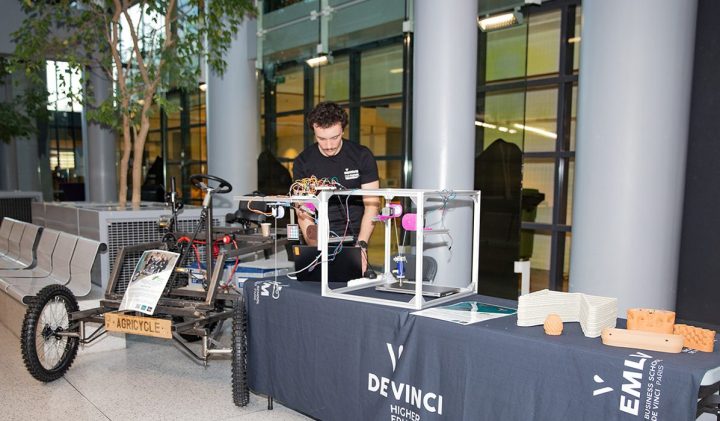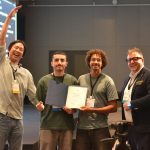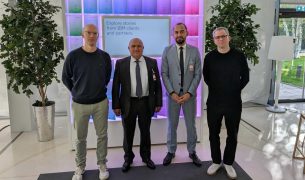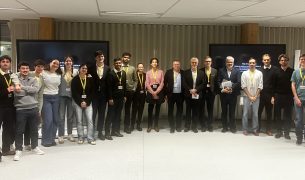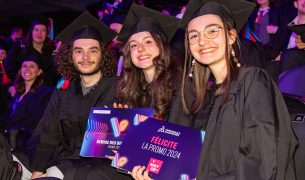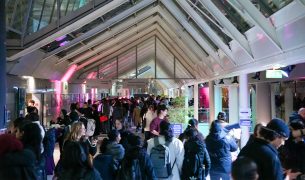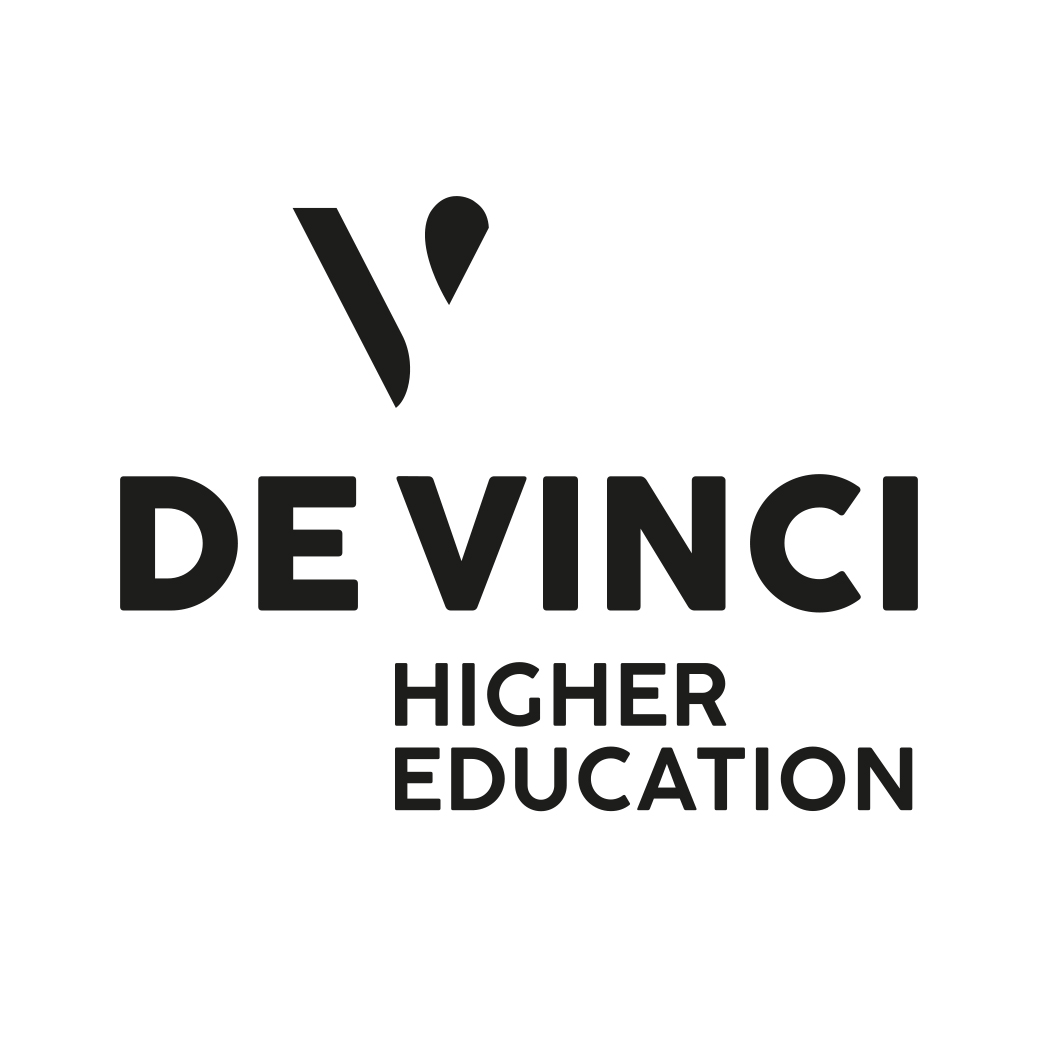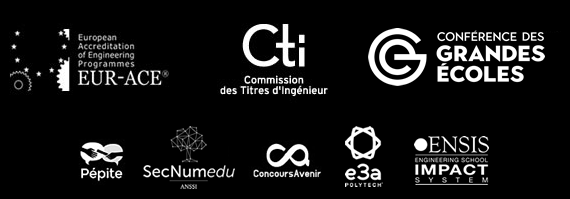One year after its inception, the Institute for Future Technologies (IFT) at De Vinci Higher Education organized a groundbreaking event to present the outcomes of projects led by students, technical associations, teacher-researchers, and entrepreneurs. The objective was to highlight research, pedagogy, art, and startup creation innovations.
This festival served as evidence of IFT’s excellence as a research laboratory. During the event, an immersive exhibition showcased advancements in research, pedagogy, and innovation.
Inside the IFT Festival of Learning
Visitors could participate in immersive experiences and discover how innovations conceived and developed within IFT were implemented. For example, participants could create a piece of leather from kombucha, print an object with a 3D printer, or create a textile using digital embroidery.
Various debates and conferences were organized to discuss the evolution of education: the roundtable “EdTech, Learning Differently” and the conference “Learning through Play,” featuring Scot Osterweil from the MIT Education Arcade and Game Lab.
The event also unveiled innovations conceived and realized within IFT and De Vinci Higher Education, including:
Haptic Interface for Virtual Reality: A glove that allows users to touch virtual reality objects. This device immobilizes fingers so that users can grasp a virtual object and feel its texture through tactile feedback. This innovation could impact various fields, including medicine, entertainment, and training.
Connected Rugby Helmet: This rugby helmet is designed to prevent and manage concussions in sports. It incorporates discreet electronics to gather maximum data and enhance the safety of both professional and amateur players. Whenever a player receives a potentially dangerous impact, an alarm signal is sent to an application for the coach or medical staff. Its design and comfort are indistinguishable from traditional rugby helmets.
Agricyle: This is a lightweight, general-purpose agricultural vehicle. It features pedal propulsion and electric assistance to ease user effort. Its main objective is to offer a low-tech and cost-effective alternative to traditional thermal tractors.
EMG Fullbody: A new interface that uses muscle electrodes to control digital devices (computers, phones, etc.). It can assist amputees in controlling prosthetics or enable digital interactions.
Biohybrid Devices: These devices utilize living biomaterials for electronic interface fabrication (controllers, keyboards, etc.). Researchers use bacterial cellulose to establish a fabrication process based on the lifecycle of biomaterials, integrating conductive elements, sensors, and output components into the biological material development process.
Bios Project: A temporary accommodation (tent) made from an inflatable organic structure. Inspired by the durability and aerobics of sea urchins in harsh environments, BIOS aims to provide an innovative housing option for individuals or emergencies.
From Brain to Screen: This project uses deep learning models on EEG (electroencephalogram) signals to allow users to control computer interfaces solely with their thoughts. It enables disabled individuals to control computer interfaces while providing a method for healthy subjects to train their mental concentration.
Showcasing innovative entrepreneurial projects in full development
Moreover, the IFT Festival of Learning highlighted various entrepreneurship projects that are developing within IFT. As an example:
Hive Robotics: Delivery of prepared meals using autonomous robots. It is the first company to introduce autonomous robots for food delivery in La Défense. The startup offers a unique experience for customers and restaurateurs by providing cheaper, safer, and more sustainable deliveries than traditional delivery services.
Izom Athletics is an athletic preparation and repair cream. It is the first range of natural, solid, and rechargeable products specially designed to prepare and aid in recovering athletes’ muscles. The goal is to develop high-quality, effective products composed exclusively of natural ingredients that are easy to use.
Mon Bisou Écolo: The marketplace that showcases artisans committed to the ecological cause. The startup’s mission is to provide a platform where talented artisans can share their art and offer high-quality, eco-friendly creations to everyone. From handmade pottery to ethical jewellery, recycled textiles, and sustainable decorations, each creation on MonBisouEcolo is chosen for its beauty, functionality, and environmental friendliness.
Creating links and interactions between entrepreneurs and the business world
Additionally, this event provided an opportunity to bring together startups and various economic actors (BPI, CCI, partner companies…) to accelerate startup development. The aim was to create links and interactions between entrepreneurs and the business world.
Furthermore, various debates and conferences allowed for exchanges on new entrepreneurial challenges: a roundtable on “Entrepreneurship in the Art World,” a discussion on entrepreneurial trends in 2024, a conference featuring Joseph Paradiso from MIT on “The Future of Sensory Entrepreneurship: Creating Human-Centered Experiences,” pitch contests for young entrepreneurs, a COVA lunch for women entrepreneurs, and more.
Thanks to the IFT Festival of Learning, De Vinci Higher Education promoted the development and visibility of the Institute of Excellence. This event also helped strengthen cross-departmental collaboration, build bridges with public and private partners, and create connections between education and business.
About the IFT
Inspired by the MIT Media Lab, the IFT (Institute for Future Technologies) offers a complete value chain from idea to startup, encompassing innovation, experimentation, and prototyping. The Institute’s structure comprises three complementary departments dedicated to innovation (De Vinci Innovation Center), prototyping (De Vinci FabLab), and entrepreneurship (De Vinci StartUp). Leveraging the resources of the three schools within De Vinci Higher Education (ESILV, EMLV, and IIM), IFT benefits from interdisciplinary collaboration to address future challenges, considering major societal transitions.









